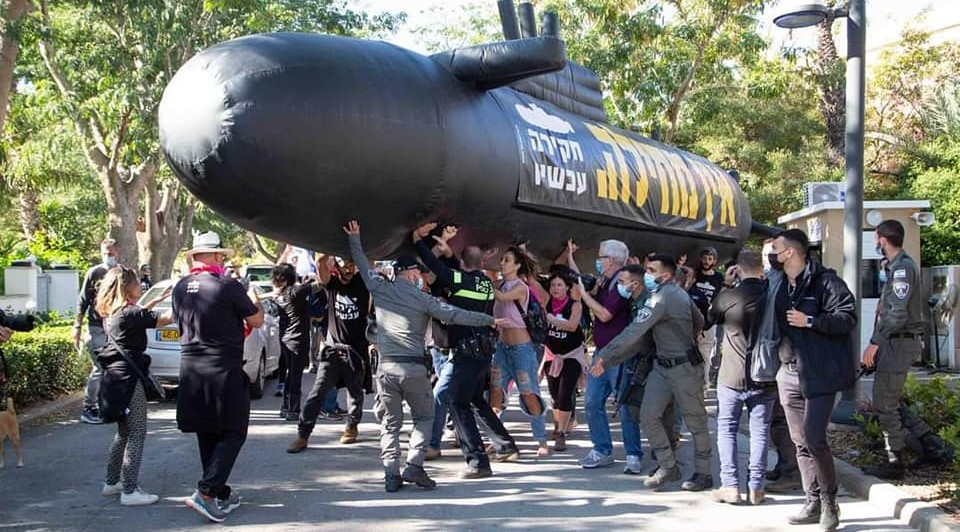Israel’s cabinet ministers approved on Friday, December 25, the regulations for the country’s third national coronavirus lockdown, which is to begin today (Sunday) at 5 pm. The lockdown is set to last at least two weeks and may extend to four, depending on when the epidemiological goal is reached: bringing down new coronavirus cases per day to 1,000. Israel’s two previous lockdowns, in April and September, succeeded in bringing down infection numbers, but morbidity ballooned again as the closures were rolled back.
The rise in Israel’s coronavirus infection rate continued on Friday, with the Health Ministry reporting nearly 4,000 new cases had been diagnosed the previous day. Almost 210,000 Israelis over the age of 60, medical professionals and assisted living staff had received the coronavirus vaccine as of Friday morning, Health Minister Yuli Edelstein said.

Police and demonstrators scuffle on Friday afternoon, December 25, near the private residence of Benjamin Netanyahu in Caesarea. The banner on the plastic submarine reads: “No Absolution – Investigate Now.” (Photo: Crime Minister)
Hadash MK Ofer Cassif (Joint List) tweeted in response to the government’s decision: “The lockdown is unnecessary. Far-right Prime Minister Benjamin Netanyahu, who only looks out for himself, is personally responsible for the chaos and the failure of the two previous lockdowns. He’s playing irresponsibly with the physical and mental health of Israeli citizens and maneuvering politically on the eve of new elections to survive and to stop massive protests.”
On Friday and Saturday nights, the eve of the lockdown, the protest movement against Netanyahu held demonstrations and hundreds of vigils around the country. Hundreds protested in Caesarea on Friday afternoon near the private residence of Netanyahu, calling for a formal investigation of the premier in a scandal surrounding a $2 billion submarine deal with Germany. Police said they arrested one of the leaders of the protest, Roey Peleg, 35, on suspicion of causing a public disturbance after the demonstrators held a short march which, the police said, was unauthorized.
The so-called “submarine affair,” previously investigated by police and state prosecutors, has resulted in indictments against several close associates of Netanyahu, as well as high-ranking military officials, but not the premier himself. The affair, also known as Case 3000, involves allegations of a massive bribery scheme in the multi-billion-shekel state purchase of the naval vessels from German shipbuilder Thyssenkrupp.
Weekly protests against Netanyahu have held firm for over six months, with protesters demanding he resign over his trial on charges of bribery, fraud and breach of trust. They have also criticized his government’s handling of the coronavirus pandemic. Netanyahu denies wrongdoing and claims the indictments are part of an effort by political rivals, the media, police and prosecutors to remove him from office. The largest weekly demonstrations are held on Saturday evenings in Jerusalem opposite the Prime Minister’s Official Residence on Balfour Street.
During the previous week, protests were also held in Tel Aviv’s Rabin and Habima squares in and outside the Sheba Medical Center in Ramat Gan, where Netanyahu received Pfizer’s COVID-19 vaccine on live television Saturday evening, December 19, being the first Israeli to be vaccinated. Smaller rallies also took place on highway overpasses and at major intersections across the country, as well as outside the Rosh Ha’ayin home of Defense Minister Benny Gantz.


